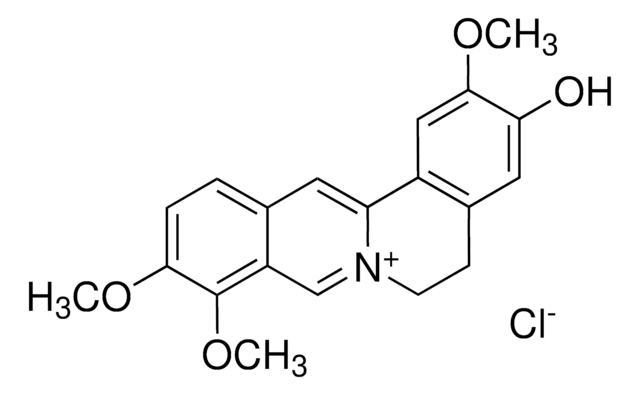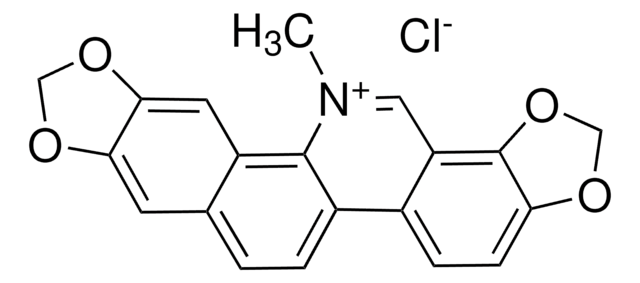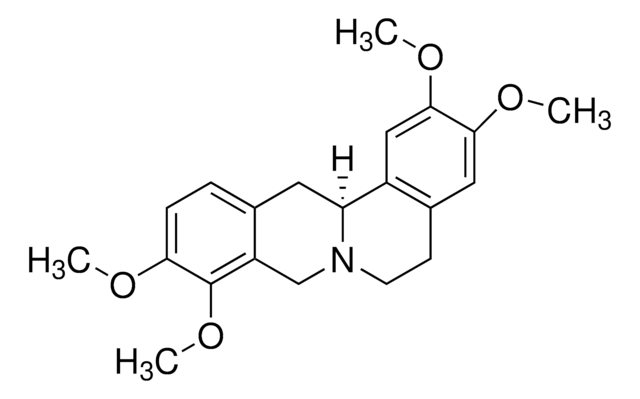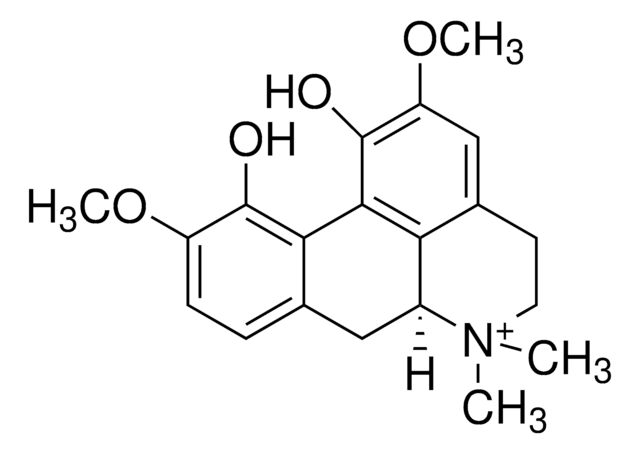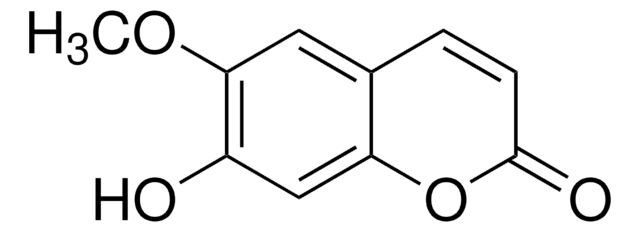361615
Palmatine chloride hydrate
97%
Synonym(s):
5,6-Dihydro-2,3,9,10-tetramethoxydibenzo[a,g]quinolizinium chloride hydrate (1:1:1)
About This Item
Recommended Products
Quality Level
Assay
97%
impurities
~1.5 mol/mol methanol
mp
206-207 °C (dec.) (lit.)
SMILES string
[Cl-].[H]O[H].COc1cc2CC[n+]3cc4c(OC)c(OC)ccc4cc3-c2cc1OC
InChI
1S/C21H22NO4.ClH.H2O/c1-23-18-6-5-13-9-17-15-11-20(25-3)19(24-2)10-14(15)7-8-22(17)12-16(13)21(18)26-4;;/h5-6,9-12H,7-8H2,1-4H3;1H;1H2/q+1;;/p-1
InChI key
PIQNSCSNSSZUIT-UHFFFAOYSA-M
General description
Application
- as alkaloid standard in the method validation for determination of berberine, hydrastine and canadine in goldenseal (Hydrastis canadensis L.) root powder
- in the preparation of 8-heteroaryl-7,8-dihydroprotoberberine
- in a study to investigate the FT-Raman and surface-enhanced Raman scattering (SERS) spectra of three related alkaloid dyes, namely palmatine, jatrorrhizine and coptisine
Signal Word
Warning
Hazard Statements
Precautionary Statements
Hazard Classifications
Acute Tox. 4 Oral - Eye Irrit. 2 - Skin Irrit. 2
Storage Class Code
11 - Combustible Solids
WGK
WGK 3
Flash Point(F)
235.4 °F - closed cup
Flash Point(C)
113 °C - closed cup
Personal Protective Equipment
Choose from one of the most recent versions:
Already Own This Product?
Find documentation for the products that you have recently purchased in the Document Library.
Customers Also Viewed
Our team of scientists has experience in all areas of research including Life Science, Material Science, Chemical Synthesis, Chromatography, Analytical and many others.
Contact Technical Service

